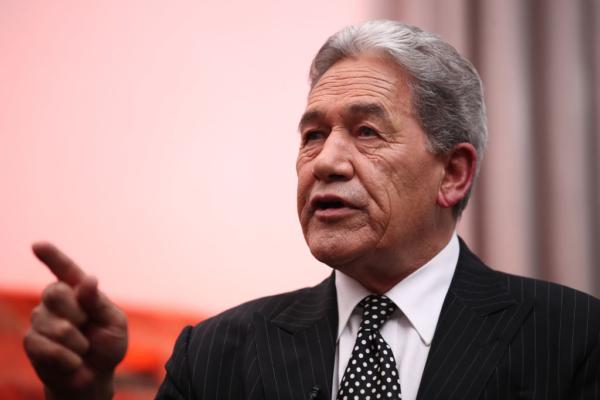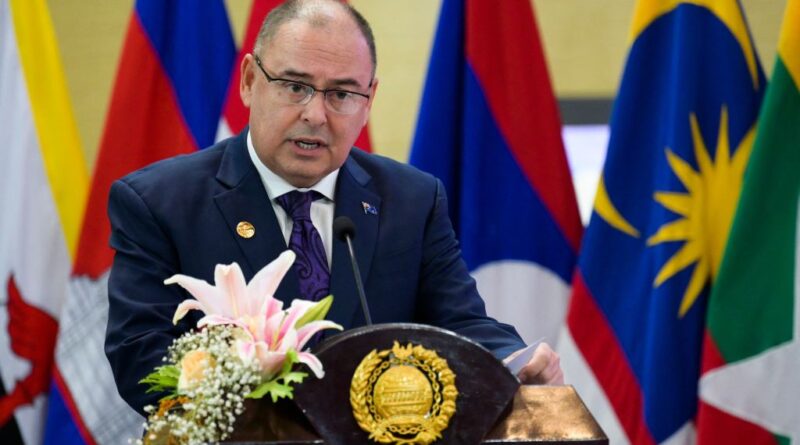The partnership deal between Beijing and Cook Islands shocks New Zealand
The new deal may violate longstanding agreements with New Zealand, the primary aid provider to the Cook Islands, and is likely to raise concerns in the US.
An unexpected development in the relationship between the Cook Islands and Beijing has emerged with the announcement that Prime Minister Mark Brown will embark on a state visit to China, scheduled as early as Feb. 7. During this visit, he is set to sign what his government terms a comprehensive partnership statement with the communist nation.
The dynamics between the Cook Islands and New Zealand are intricate. Both countries, like Niue, are in free association within the Realm of New Zealand, a region encompassing these islands, New Zealand, Tokelau, and the Ross Dependency.
While the Cook Islands and Niue lack full constitutional independence from New Zealand, they operate as independent nations. Some countries, including the US, have acknowledged them as sovereign entities and established diplomatic ties. However, New Zealand may handle defense and foreign affairs on their behalf upon request.
Previously dependencies of New Zealand, the Cook Islands altered their status on Aug. 4, 1965. While the New Zealand Act of Parliament referencing self-governance mentions New Zealand’s role, the Cook Islands Constitution does not grant New Zealand any authority to influence the decisions of the Pacific island nation.
Notwithstanding, nationals of the Cook Islands are automatically New Zealand citizens and hold New Zealand passports.
Between 2008 and 2022, according to data from the Lowy Institute, New Zealand has accounted for 42 percent of all aid received by the Cook Islands (A$219 million/US$137.66 million). China contributed $112 million, representing 22 percent, while Australia provided $48.7 million, equivalent to 9 percent.
New Zealand, Cook Islands Commitments
Last year, New Zealand’s Foreign Minister Winston Peters revealed NZ$20 million in Core Sector Budget Support for the Cook Islands over the following two years, with a focus on education, health, and tourism.

New Zealand Foreign Minister Winston Peters, pictured on Oct. 1, 2020. Fiona Goodall/Getty Images
The joint statement from the annual ministerial forum of both nations emphasized “a relationship grounded on historical, familial, cultural, economic, and social connections that have spanned generations. These core ties are further strengthened by current shared values, history, citizenship, and partnership,” assuring continued mutual consultation on significant matters.
The forthcoming agreement between Brown and Chinese Communist Party leader Xi Jinping has sparked significant unease in Wellington.
Peters stated that his country has consistently emphasized to the Cook Islands that any substantial changes in the relationship, including moves towards complete independence, should be determined by the Cook Islands populace through a referendum.
He stressed the expectation for the New Zealand government to be thoroughly consulted on major international agreements that could have significant strategic and security implications.
Formal consultations were recently requested by New Zealand and held in Rarotonga last week, led by the Secretary of Foreign Affairs and Trade Bede Corry.
Issues of contention include “lack of transparency by the Cook Islands concerning policies and partnerships with other nations that could pose significant security risks for the Cook Islands, New Zealand, and the broader Pacific community.”
It is expected that this wider community will include Australia and the US, essential allies against the expansionist policies of the CCP.
Strategic Value

The strategic significance of the Cook Islands primarily stems from their geographical positioning in the South Pacific, offering a crucial vantage point for monitoring regional activities and potentially serving as a logistical base. The country’s extensive Exclusive Economic Zone (EEZ) is key for maritime surveillance, particularly in combating threats like illegal fishing, drug trafficking, and transnational crime.
Despite lacking a military, the Cook Islands can support regional security efforts through intelligence sharing and collaboration with New Zealand forces.
The Chinese Embassy in Wellington reported that Beijing’s engagement with Rarotonga began in 2015 and has progressed over time. Notably, Cook Islands leaders, including consecutive prime ministers, have increasingly interacted with CCP officials, with Executive Vice Foreign Minister Ma Zhaoxu visiting the Cook Islands in December. This growing closeness culminates in Brown’s impending visit, scheduled for later this week.





